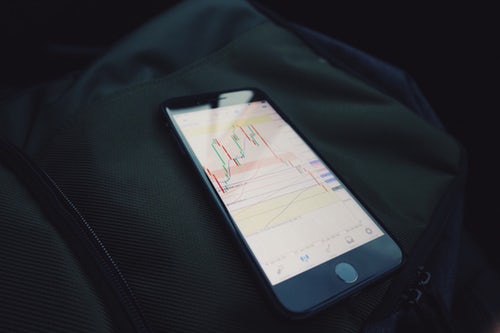On Wednesday, April 9, 2019, the share market of Asia saw dip from its “eight-month highs”, as the tariff tension between Europe and the U.S. increased and the IMF toned down on “global growth outlook”. The “broadest index of Asia-Pacific” of MSCI touched its highest and fell by 0.3% “outside Japan” within a day’s time.
Similarly, the “Shanghai Composite Index” dropped by 0.55% while Nikkei of Japan fell by 0.7%, whereas the S&P on Wall Street as well as the Nasdaq Composite fell by 0.61% and 0.56% respectively on Tuesday, April 09, 2019. While Reuters added:
“MSCI’s broadest gauge of the world’s stock markets was down slightly from Tuesday’s six-month peak but it was still up roughly 19 percent from a near two-year trough marked in December”.
Even though recent performance at the share markets have not met with the forecasts, a hope of a “trade deal between Washington and Beijing” still prevailed added with the optimism of the Chinese economy hitting the bottom as the “policy support kicks in”. The Chief Investment Strategist at “Mitsubishi UFJ Morgan Stanley Securities”, Norihiro Fujito said:
“The gap between the strength in global shares and sluggishness in the real economy has been widening”.
On Tuesday, the IMF slashed global economic growth forecast for this year, whereby reinforcing the above mentioned view, citing the slowing down of global economy “more than expected”, while it also stated that the world leaders might need to “coordinate stimulus measures” if met with a “sharp downturn”.
In fact, the U.S. data also indicated the “cautious mood”, while job openings crumbled down to an eleven month low in February, which raised “doubts about the strength of U.S. labor market”, among the few remaining “bright spots in the economy” so far.
Anxiety related to global trade was another reason for asset markets risk. President Trump has warned of imposing “$11 billion” worth tariff on the products of the EU, which heightened the tensions on the “transatlantic aircraft subsidy dispute” which has been now running for a long time. This move comes at a time when markets are on edge while negotiators are trying to strike “trade deals with China and neighbors Mexico and Canada”. ANZ’s economists stated:
“This time it’s the United States and the European Union trading words and announcing retaliatory tariffs over subsidies to aircraft makers”.
“Watch this space. It’s small-fry versus the U.S.-China spat, but unhelpful for sentiment.”
References:
reuters.com
Similarly, the “Shanghai Composite Index” dropped by 0.55% while Nikkei of Japan fell by 0.7%, whereas the S&P on Wall Street as well as the Nasdaq Composite fell by 0.61% and 0.56% respectively on Tuesday, April 09, 2019. While Reuters added:
“MSCI’s broadest gauge of the world’s stock markets was down slightly from Tuesday’s six-month peak but it was still up roughly 19 percent from a near two-year trough marked in December”.
Even though recent performance at the share markets have not met with the forecasts, a hope of a “trade deal between Washington and Beijing” still prevailed added with the optimism of the Chinese economy hitting the bottom as the “policy support kicks in”. The Chief Investment Strategist at “Mitsubishi UFJ Morgan Stanley Securities”, Norihiro Fujito said:
“The gap between the strength in global shares and sluggishness in the real economy has been widening”.
On Tuesday, the IMF slashed global economic growth forecast for this year, whereby reinforcing the above mentioned view, citing the slowing down of global economy “more than expected”, while it also stated that the world leaders might need to “coordinate stimulus measures” if met with a “sharp downturn”.
In fact, the U.S. data also indicated the “cautious mood”, while job openings crumbled down to an eleven month low in February, which raised “doubts about the strength of U.S. labor market”, among the few remaining “bright spots in the economy” so far.
Anxiety related to global trade was another reason for asset markets risk. President Trump has warned of imposing “$11 billion” worth tariff on the products of the EU, which heightened the tensions on the “transatlantic aircraft subsidy dispute” which has been now running for a long time. This move comes at a time when markets are on edge while negotiators are trying to strike “trade deals with China and neighbors Mexico and Canada”. ANZ’s economists stated:
“This time it’s the United States and the European Union trading words and announcing retaliatory tariffs over subsidies to aircraft makers”.
“Watch this space. It’s small-fry versus the U.S.-China spat, but unhelpful for sentiment.”
References:
reuters.com






